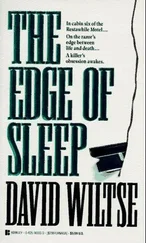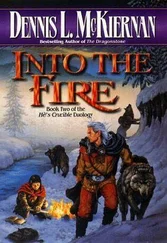David Wiltse - Into The Fire
Здесь есть возможность читать онлайн «David Wiltse - Into The Fire» весь текст электронной книги совершенно бесплатно (целиком полную версию без сокращений). В некоторых случаях можно слушать аудио, скачать через торрент в формате fb2 и присутствует краткое содержание. Жанр: Триллер, на английском языке. Описание произведения, (предисловие) а так же отзывы посетителей доступны на портале библиотеки ЛибКат.
- Название:Into The Fire
- Автор:
- Жанр:
- Год:неизвестен
- ISBN:нет данных
- Рейтинг книги:5 / 5. Голосов: 1
-
Избранное:Добавить в избранное
- Отзывы:
-
Ваша оценка:
- 100
- 1
- 2
- 3
- 4
- 5
Into The Fire: краткое содержание, описание и аннотация
Предлагаем к чтению аннотацию, описание, краткое содержание или предисловие (зависит от того, что написал сам автор книги «Into The Fire»). Если вы не нашли необходимую информацию о книге — напишите в комментариях, мы постараемся отыскать её.
Into The Fire — читать онлайн бесплатно полную книгу (весь текст) целиком
Ниже представлен текст книги, разбитый по страницам. Система сохранения места последней прочитанной страницы, позволяет с удобством читать онлайн бесплатно книгу «Into The Fire», без необходимости каждый раз заново искать на чём Вы остановились. Поставьте закладку, и сможете в любой момент перейти на страницу, на которой закончили чтение.
Интервал:
Закладка:
Which would seem to mean that there was no good place to hide it. How much space would be needed to secrete a few square inches of paper? But an addressed envelope might be harder to hide. Which might mean that the corspondent had no quick access to a mailbox. His message might have to sit around for some time before being mailed-if the correspondent was a shut-in, for instance.
Or if the correspondent lived in some remote area far from the nearest mailbox.
Becker studied the postmark again. Decatur, Alabama.
Not exactly the middle of Alaska, but not New York City, either. Alabama was rural enough that mailing a letter could easily be a bit of a problem, and the postmark was never a very accurate indication of where a piece of mail had actually originated. Becker knew that his own mail frequently bore the imprint of a Stamford post office, and Stamford was thirty miles and at least four intervening towns away from Clamden and had an entirely different zip code. Decatur, Alabama, could be the funneling junction for outgoing mail for a surrounding area of hundreds of square miles.
A third possibility was that someone read the correspondent's mail before it went out. Becker had seen Karen do it with Jack's letters to his school pen pals. And she had actually made him make corrections in thank-you letters to grandparents. But then Jack never had a stamp and usually neglected to seal the envelope as well. Becker knew that his correspondent was not a child. He wished that were the case. He wished that he was on the receiving end of a prank, some more sophisticated version of eight-year-olds calling strangers and giggling through their hands as they asked if the hapless adult on the other end of the line had Prince Albert in the can, and if so to please let him out.
What Becker had on the other end of his line was an adult, an intelligent one who was afraid of something, or someone, and trying, probably at some risk to himself, to get help. If he or she was attempting to give Becker information about a long-dead girl who had been found three years ago in an abandoned mine, then the most obvious conclusion was that the correspondent was hiding his actions from someone who had some reason for the information not to come out.
But why me? he wondered. Why not just the FBI in general? Any of the agents could have decoded the message and gotten onto the case immediately. Why select an agent who is no longer active?
He knew the answer without thinking about it. Because he was known. The correspondent had either heard about Becker, or, worse, had encountered him. If he was one of the latter, Becker thought, if he was one of the psychopaths whom Becker had stalked and captured…
He had never caught one easily. They were all too clever to be tracked down by traditional police work, that was why the cases were given to Becker. It was never a case of just finding a fingerprint or a laundry mark or a dropped match book with the name of the bar where the killer worked. Old-fashioned police work was necessary, and it helped, but there was any number of cops and agents who could do it and ultimately it was never enough. Ultimately it was Becker who immersed himself in the case in a way few others could-or would allow themselves to do. He put himself in the killer's skin and sank into the killer's mind, forcing himself to think his thoughts and dream his fevered dreams.
There was nothing mystical about it as many of his colleagues thought.
There was no ESP at work. His therapist understood the way it worked-and the price Becker paid. No one understood a thief better than another thief. An arsonist understood an arsonist. And men who killed because of the incomparable thrill it gave them were best comprehended by…
Becker left the den and walked quietly through the darkened house, pacing and cursing in his mind the intrusion of the correspondent. I was clean, he thought. I was out of it and away. Part of a family. Building a life. Then the tentacle of his own insatiable beast reached out for him, slithering through the cracks of his jerry-built security. He could feel the slimy touch on his leg, tugging him downward even as its coils reached upwards for his throat.
He eased open the door to Jack's room and saw the in the moonlight, one arm thrown above his head as if he slept hanging from a branch. Becker loved to catch the boy unawares, the look of innocence radiating from him. Becker was in awe of the cleanness of Jack's life, the purity and the simplicity. He was a boy, doing boy things, thinking boy thoughts, and feeling only those emotions that a boy of ten should feel. At his age Becker had already been put through the terrors of abuse that had shaped him and brought him to his present crisis. He regarded it as a small miracle that he was able to share Jack's youth, and almost as much as he feared for himself, Becker feared that his own past might in some way taint Jack's future.
In the darkness of the living room, Becker forced himself to sit quietly and to contain his anxieties within his own center. If his was an addiction over which he had attained a certain amount of control, he had done it without the twelve-step self-help groups that existed for every other type of addiction. There were no meetings for people with his affliction. Others who shared his problem were shifting silently through the shadows of the outside world, preying on the innocent. They did not come forth for treatment. Unlike drunks and druggees who might seek counseling when they hit bottom, the creatures in whom Becker specialized yearned for the bottom. It was what they had sought all their lives, and it was there and only there that they and the release that they needed, even as they sank ever farther in the booze. For them there was no limit to how far they could sink, because each successful kill only increased their depravity and furthered their heed. There was no bottom. All that limited them was time. How long could they go on before they were caught? Becker had no doubts that there were many who were never caught, who killed and killed until their own hearts gave out with the sheer excess of joy of it all.
Becker's self-help group could only meet in prison, where he had personally put many of them. Or in a cemetery, where he had put even more. It was after planting his first victim underground that Becker had discovered what he had in common with the men he hunted. He was, he felt, the same as they, except that he had a license to hunt. His victims were loathed by society and he was applauded, but in Becker's mind he was merely performing a kind of socially accepted cannibalism.
The big fish in the pond eating all the smaller ones, he thought with self-disgust.
But there was something else that set him apart from his fellows, of course, besides his FBI badge and official position, and it was the cause of his pain. Unlike them, Becker wanted desperately to stop. He did not believe that an actual cure was possible; he would always be who he was in the deepest recesses of his, soul, and no amount of therapy had convinced him otherwise, but he was convinced that by an exercise of sheer will he could alter his behavior. He could stop.
And he had done so although it took a resignation for the Bureau to accomplish it. They had not accepted his resignation, delegating him instead to a status known in bureaucratese as "inderterminate medical extension," which meant that they could reach out for him when they needed to and not worry about him otherwise. For his part, he was not obliged to respond when they called. But they knew he would. A ferret did not refuse to go down a hole. It was what he had been bred to do. It was where it lived.
At the library the next morning Becker settled in front of the now familiar microfilm screen and quickly located the date and page of the message. Once again the story was at the bottom of the page, nothing more than a bit of filler taken from the AP wire. A second body had been found in the same mine in Hendricks, West Virginia. Another young woman who had been missing for months.
Читать дальшеИнтервал:
Закладка:
Похожие книги на «Into The Fire»
Представляем Вашему вниманию похожие книги на «Into The Fire» списком для выбора. Мы отобрали схожую по названию и смыслу литературу в надежде предоставить читателям больше вариантов отыскать новые, интересные, ещё непрочитанные произведения.
Обсуждение, отзывы о книге «Into The Fire» и просто собственные мнения читателей. Оставьте ваши комментарии, напишите, что Вы думаете о произведении, его смысле или главных героях. Укажите что конкретно понравилось, а что нет, и почему Вы так считаете.












